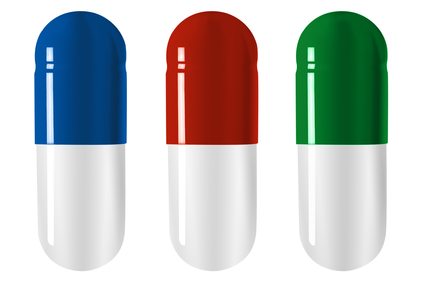FDA Releases Detailed Plans for ‘VQIP’ Food Importer Trusted Trader Program
FDA Releases Detailed Plans for ‘VQIP’ Food Importer Trusted Trader Program
Excerpt from: International Trade Today | June 4 2015
The issued a draft guidance (here) detailing its plans for the Voluntary Qualified Importer Program, a trusted trader program for food importers that will provide benefits including fewer examinations and expedited laboratory analysis. FDA has said it hopes to launch VQIP in 2017, following the implementation of a system of accreditation bodies for third-party auditors that will certify foreign food exporters as eligible sources of imports under the program. The agency is seeking comments on its draft plan for VQIP by Aug. 19, it said in a Federal Register notice (here).
Program for importers with history of compliance. According to the draft guidance, the program will be open to food importers in good standing with FDA and CBP that import from foreign food facilities that have been registered with FDA and certified by third-party auditors as compliant with FDA regulations.
The importer must have a history of compliance, must use filers/brokers who have passed their most recent FDA filer evaluation, and cannot import food that is the subject of an import alert or other FDA administrative or judicial action.
For the purposes of VQIP, “importer” would be defined as the person that brings food, or causes food to be brought, from a foreign country into the customs territory of the United States. The VQIP im porter definition is not the same as FDA’s definition of importer for the purposes of the Foreign Supplier Verification Program or CBP’s definition of importer of record. The VQIP importer may be located outside the United States, said FDA.
porter definition is not the same as FDA’s definition of importer for the purposes of the Foreign Supplier Verification Program or CBP’s definition of importer of record. The VQIP importer may be located outside the United States, said FDA.
VQIP status designated at entry. In order to obtain VQIP benefits, additional data elements would need to be submitted at entry. A VQIP Affirmation of Compliance (AofC) code and the importer’s VQIP application number would be required. Products and foreign suppliers would have to be listed on the importer’s approved VQIP application on file with FDA in order to be eligible for VQIP benefits.
{Photo Source: Depositphotos.com/thomaslenne}
The importer may import both VQIP and non-VQIP food, with FDA expediting only the entry lines associated with the VQIP food. In such cases, the importer should make sure the VQIP foods are easily segregated from the non-VQIP foods so they can be moved into commerce, said FDA.
Benefits include immediate release, limited sampling, expedited lab analysis. For food designated as VQIP at entry and listed on an importer’s approved VQIP application, FDA would expedite entry by setting screening in its import targeting system to recognize and immediately release VQIP entries “unless examination and sampling are necessary for public health reasons,” said FDA. Examination or sampling would be limited to “for cause” situations, such as when there is an outbreak or illness associated with the type of food or one of the importer’s foreign suppliers, as well as microbiological sampling “related to specific risk-based surveillance activities,” said FDA. The agency would also conduct “sporadic audit examinations” to verify the importer’s compliance with VQIP.
When sampling and analysis is required, FDA would schedule laboratory analyses to ensure VQIP samples receive priority over non-VQIP samples, it said. FDA will also work with CBP in cases where “exportation is warranted” to ensure the food is exported from the port preferred by the importer, it said.
VQIP participants would also get the benefit of a “VQIP Importers Help Desk dedicated to responding to questions and resolving issues raised by VQIP importers about VQIP food,” and importers would be able to contact the help desk if their VQIP entries are delayed to enlist FDA’s assistance to resolve issues with CBP. The agency will post a publicly available list of approved VQIP importers on its website. Importers would be able to opt out of the list.
Applications and fees due every year. Approval of VQIP applications would only run for one fiscal year, from Oct. 1 through Sept. 30. Each year, between Jan. 1 and May 31, importers would have to submit a new application for the fiscal year beginning Oct. 1, with the ability to repopulate new applications using data submitted on the importer’s previous application on file. Information required would include applicant and firm application, including a DUNS number, the company’s FSVP contact, details of the importer’s VQIP Quality Assurance Program, filer/broker information, foreign supplier facility information and products subject to VQIP. FDA would inspect the importer after the first application and at least every three years thereafter.
Once the application is approved, a user fee would be due by Oct. 1. The importer would be able to revise its application after approval and throughout the fiscal year to reflect changes to foods covered by the program and changes to the importer’s brokers and foreign suppliers. FDA said importers should immediately amend their VQIP applications if a food or foreign supplier becomes subject to an import alert or other FDA administrative or judicial action.
Revocation of VQIP participation. FDA says it would revoke an importer’s VQIP approval if the importer imports food under VQIP that is not covered by a current facility certification or if the importer makes changes to its Quality Assurance Program without revising the QAP in its application. FDA may also revoke participation if the importer does not meet one or more of the VQIP eligibility requirements, or if there is evidence that the importer participated in smuggling or “other fraudulent activities,” it said. Reinstatement into VQIP would be possible for importers that correct deficiencies or submit corrective action plans, except in cases where participation was revoked based on evidence of smuggling or fraud, said FDA.
